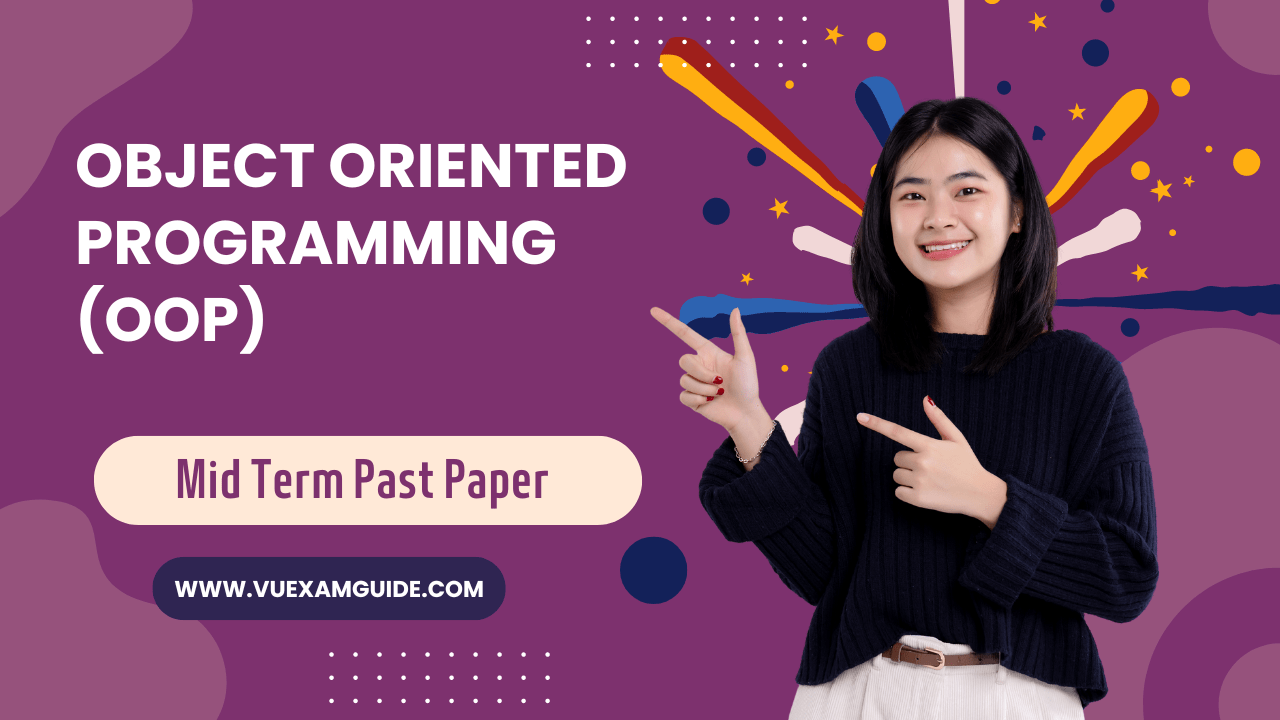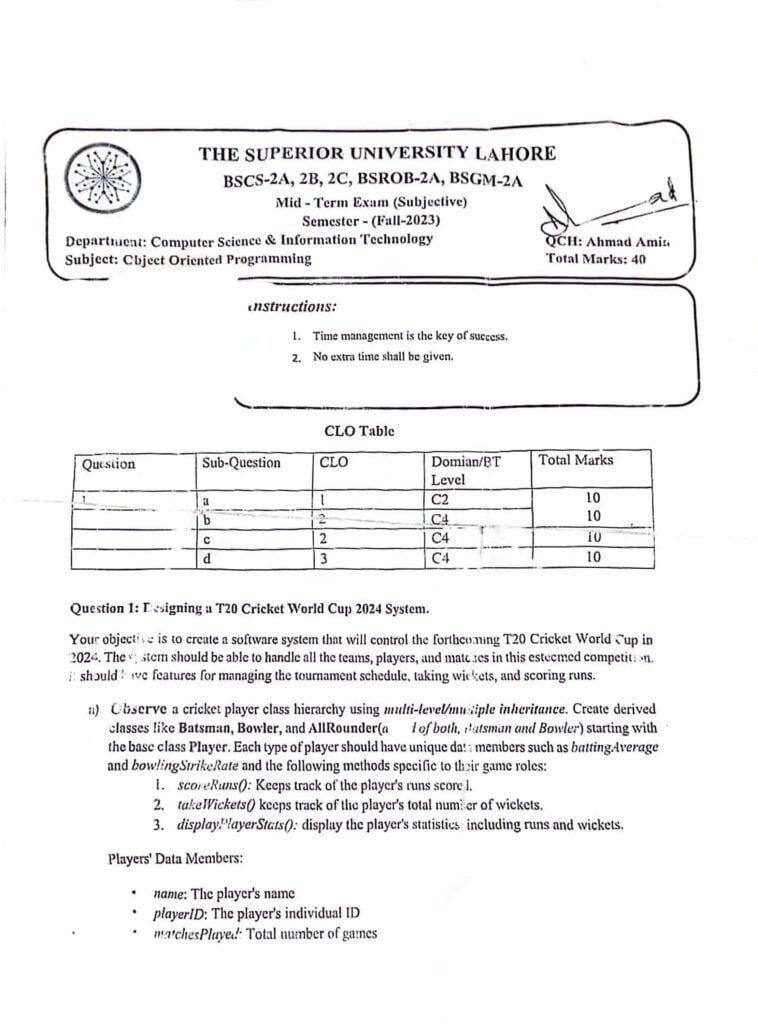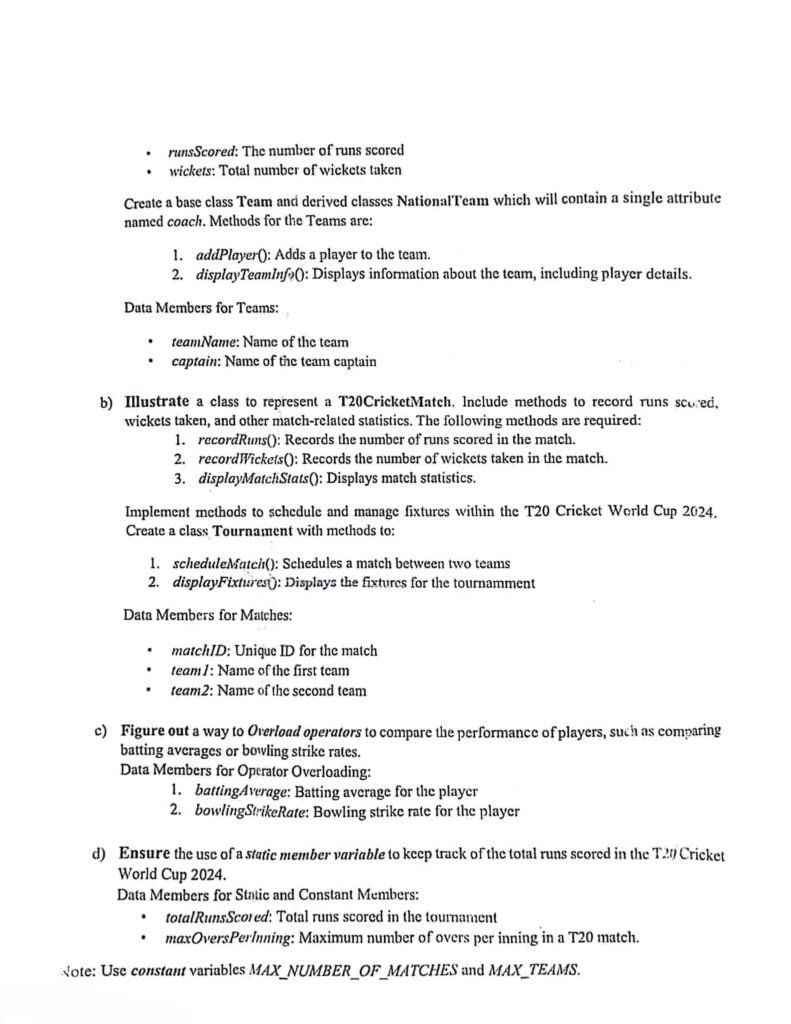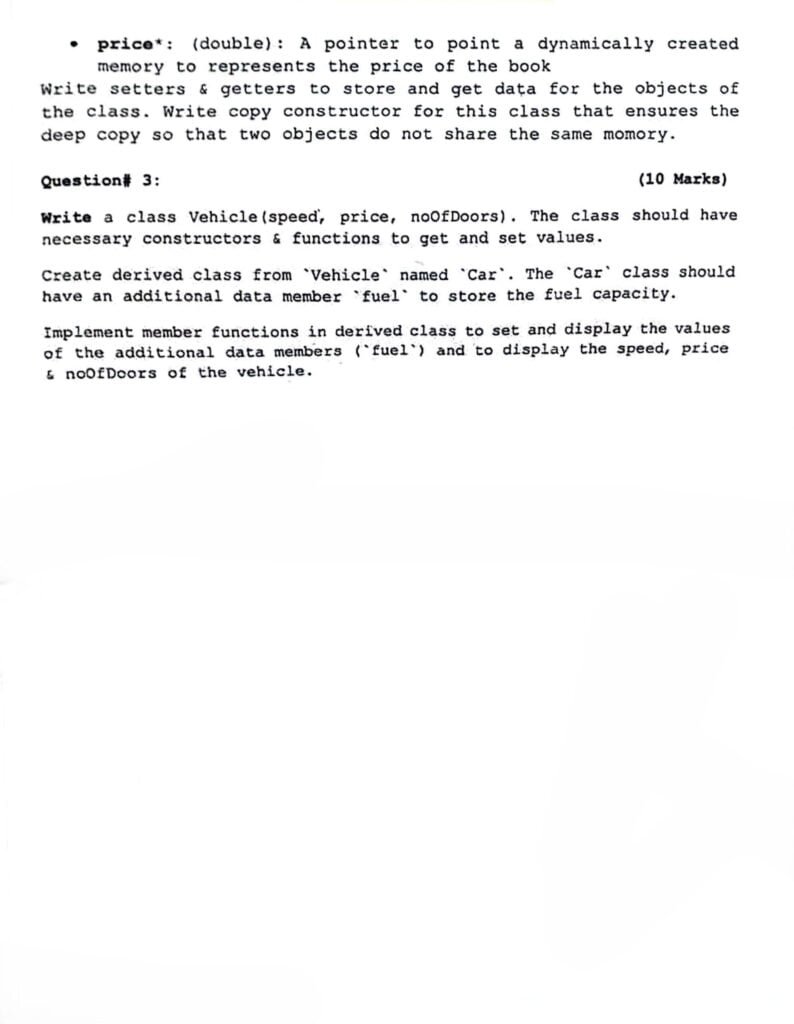Object-Oriented Programming (OOP) | Mid Term Past Paper | Superior University | VU Exam Guide

Table of Contents
Object-Oriented Programming: A Key to Modern Software Development
At Superior University, Object-Oriented Programming (OOP) is a foundational course for computer science students. An overview of OOP will be given in this blog article, including with discussions of what you’ll learn, its significance, practical applications, employment prospects, wage expectations, and more. You’ll see by the end why it’s so important to learn OOP for your future professional endeavors.
Introduction to Object-Oriented Programming
A programming paradigm called “object-oriented programming” (OOP) makes use of “objects” in the design of software. Classes are made up of instances that can have methods (functions) and data (attributes). By modeling real-world elements, this method improves the intuitiveness and manageability of software development.
Learning Outcomes
- Understand the principles of Object-Oriented Programming: encapsulation, inheritance, polymorphism, and abstraction.
- Learn to design and implement classes and objects.
- Develop the ability to create reusable and maintainable code.
- Gain practical experience by working on real-world projects and assignments.
Importance of Object-Oriented Programming
OOP is crucial for several reasons:
- Modularity: Code is organized into objects, making it easier to manage and modify.
- Reusability: Objects and classes can be reused across different programs.
- Scalability: OOP makes it easier to manage large codebases.
- Maintainability: Easier to debug and maintain due to its structured approach.
Real-Time Applications of Object-Oriented Programming
OOP is used in various applications, including:
- Web Development: Frameworks like Django (Python) and Ruby on Rails (Ruby) use OOP principles.
- Mobile App Development: Swift for iOS and Java/Kotlin for Android heavily rely on OOP.
- Game Development: Unity (C#) and Unreal Engine (C++) are popular game engines that use OOP.
History of Object-Oriented Programming
In the 1960s, OOP made its debut with the simulation-focused Simula language. But in the 1980s, OOP became more common thanks to the introduction of languages like C++ and then Java.
Job Opportunities and Salary Expectations
Completing the OOP course opens up numerous job opportunities, such as:
- Software Developer
- Web Developer
- Mobile App Developer
- Game Developer
Although there are differences in this industry, entry-level roles typically start at a pay of between $60,000 and $80,000 annually. Experience can make a big difference in this, particularly in highly sought-after areas or specialized fields like game development.
Achievements and Benefits
Mastering OOP can lead to significant achievements:
- Professional Growth: Opens doors to advanced programming roles.
- Increased Employability: Highly sought-after skill by employers.
- Higher Salaries: Specialists in OOP often command higher wages.
Market Value and Future Prospects
OOP is currently standard in the tech sector. Because of the continuous improvements in software development and the growing complexity of applications, its future worth is expected to remain high. Gaining knowledge of OOP now can help you remain current in the ever changing tech industry.
Project Ideas
Here are some project ideas to enhance your OOP skills:
- Library Management System
- Online Shopping Cart
- Hotel Booking System
- Personal Finance Tracker
FAQs
Q: What is encapsulation in OOP?
The idea of encapsulation is to combine methods and data into a single entity known as a class.
Q: What is the difference between a class and an object?
A class is an object creation blueprint. An instance of a class is called an object.
Q: What is inheritance?
Through the mechanism of inheritance, a class can inherit the characteristics and actions of another class.
Interview Questions
- What are the main principles of OOP?
- How does polymorphism work in OOP?
- Can you explain the concept of inheritance with an example?
Exam Importance
From the standpoint of a test, understanding OOP is essential. Typical topics for the midterm and final term papers are:
Definitions and theoretical queries on the fundamentals of OOP.
- Realistic coding challenges.
- Design patterns and case studies.
- Use vuexamguide.com’s practice exams to improve your score. They offer insights into the format of the questions and aid in your preparation.


Paper 2



Note: You can also checkout all Subject’s Mid Term Past Papers of Superior University.
Conclusion
For those who want to work as software engineers, object-oriented programming is a necessary ability. Its concepts are the cornerstone of contemporary software development, and becoming proficient in them leads to a wide range of professional options. Focus on Object-Oriented Programming to stay ahead in your profession, and don’t forget to download sample exams at vuexamguide.com to improve your score on tests. Have fun with coding!
 Virtual University
Virtual University
 Superior university
Superior university